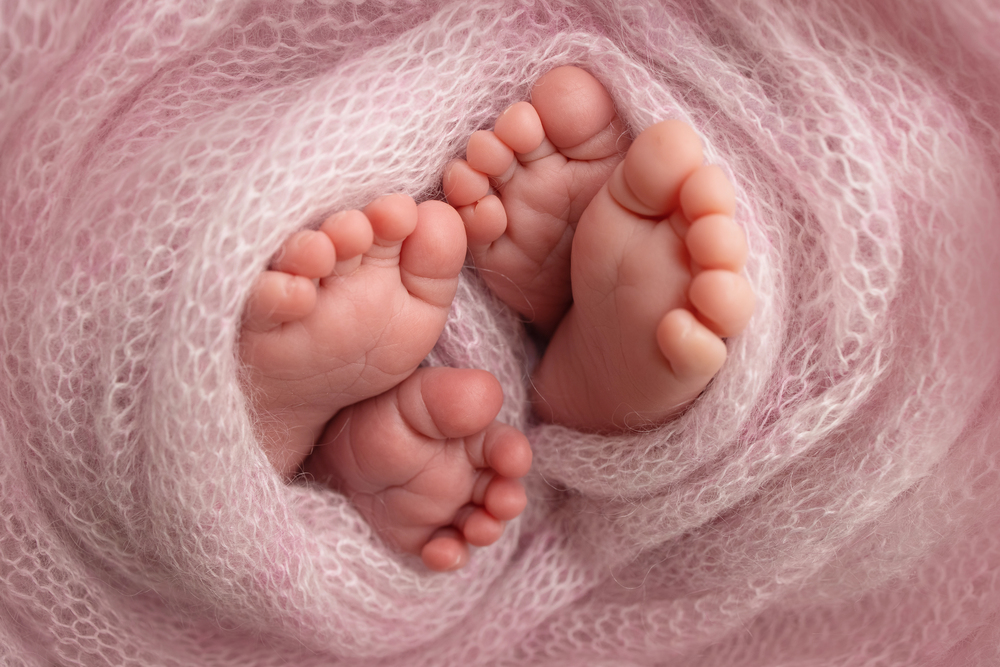Advanced Maternal Age: All About Pregnancy at Age 35+
Published on 11/20/20
Women who get pregnant after the age of 35 are referred to as “advanced maternal age” pregnancies. Pregnancies at this age automatically make a woman high risk. Solely because of their age and the risks involved, a doctor may tell a mother that they should have a labor induction or C-section at 39 weeks.
Is it common to see pregnancies at this age? What are the risks involved? What are the history and guidelines a woman should consider for advanced maternal age, induction and C-section?
The increase in advanced maternal age has been skyrocketing in the number of women having their babies at age 35 and older. This trend started in the mid-1070s and has continued to rise over time. Women at advanced maternal age were at 8% in 1990, 11% in 2002, and has risen to 15%. This also increases the numbers to 10% of first-born(s) women are having as first time mothers at 35 or older.
And this trend continues to rise in all ethnic groups throughout the U.S. The average age of a woman’s first birth is around 26 years of age which has become the record high for the States. Which means teen birth rates and the birth rates of women in their 20s have seen an all-time low.
What’s the Delay in Parenthood?
First, let’s look at why is this happening? Cause it’s happening all around the world. Partly, the availability of birth control is to blame. Although, birth rates in younger women have also gone down in other countries that have less access to birth control. Therefore, this can’t be an isolated reason. It’s more like there are other social and cultural factors that play a bigger role in why the age for pregnancy keeps increasing.
Possible Reasons Women May Delay Pregnancy:
- Women are reaching higher educational levels
- More women in male-dominated fields that are not as understanding or supportive of motherhood
- Cultural and value shifts have led towards more women not feeling “ready” to have a child yet
- Lack of childcare, low benefit levels, and workplace policies that signal to women that they cannot be both a wage earner and a mother
- Divorce, going through multiple partners before settling down, and living together before marriage leads some people to delay parenthood
- Economic or housing uncertainty, unemployment, temporary work, or unstable labor markets
It’s also a possibility that the advancement in fertility treatments are more reason for later pregnancies.
Infertility has been an issue being researched since the late 1880s. Conflicting science and religious morals slowed the process down. In 1969 the majority of Americans believed that vitro fertilization was against God’s will. However, by 1978 the majority of Americans supported the IVF “test tube baby” and would be willing to try it.
In turn, by 2004, more than half a million babies had been born by IVF. This means in total, a combination of birth control options and fertility treatments had been made widely available to women. These social and cultural factors are part of the reason there’s been a rise in the rate of women who have babies 35 and up.
Considering Pregnancy at a Maternal Age?
Considering pregnancy after 35? Understanding the issues and risks that come with advanced maternal age and knowing what it takes to have a healthy pregnancy is necessary.
The good news is, nowadays having a baby after 30 is very common. Many women have delayed and are considering delaying pregnancy after 30. Learning how to start taking care of yourself to be able to deliver a healthy baby is a good start.
Know The Risks
The age 35 is not a magical number. Things in our bodies don’t just switch off like a light, but it is time to take into consideration what various risks start to show up in this age bracket. For example:
Multiple Pregnancies – because of hormonal changes in our later years, the chances of developing twins is much higher. This is when a woman releases multiple eggs at the same time. As well as procedures like vitro fertilization, that play roles in increasing the risk of multiple pregnancies.
Harder to conceive – As women get older, egg numbers start to decrease in quantity and quality. A woman’s eggs become increasingly harder to fertilize. Some women can go months without conceiving. Talk to your medical care professional about not being able to conceive if it’s been over six months.
More likely to be able to develop gestational diabetes – This type of diabetes only occurs during a pregnancy and becomes more common as a woman gets older. Controlling blood sugar and incorporating physical activity are a means to controlling gestational diabetes. This type of diabetes can cause a baby to grow much larger than average. This can increase risk of injury during delivery and sometimes may need medication. It also can cause premature birth, high blood pressure and complications after delivery.
Developing high blood pressure – high blood pressure develops during pregnancy and is very common in older women. Your healthcare provider should be monitoring your blood pressure and the development of your baby. To avoid future complications with high blood pressure, you may need more frequent appointments and an earlier delivery than your due date.
Risk of pregnancy loss – Miscarriage or stillbirth increases as women get older. Sometimes from pre-existing medical conditions or abnormalities. It’s a risk that comes with the decrease in the quality of a woman’s eggs. Normally combined with medical conditions like diabetes or high blood pressure. Your healthcare provider will be monitoring your condition for the well-being of your baby during pregnancy.
Low birth weight or premature birth – Premature babies, or preemies, often have complicated medical problems
A risk of chromosome abnormalities – babies born to advanced maternal age mothers have a higher risk of chromosome problems such as Down Syndrome.
Might need a C-Section – Older mothers have a higher risk of complications that may lead to a C-section delivery. Situations similar to when the placenta blocks the cervix.
Start With The Right Foot Forward
The best way to take care of yourself and your baby is to pay attention to the basics. Women considered advanced maternal age should make it a point to:
Prenatal Care Appointments – make sure to schedule regular appointments with your healthcare provider. If you’re considering becoming pregnant, make sure to schedule a preconception appointment to talk to your doctor about your overall health and lifestyle. Discuss improvements that can be made and any concerns you may have about fertility or pregnancy.
Regular prenatal visits help your doctor monitor your health and the baby’s health and be there for any bumps along the way.
A Healthy Diet – Eating a healthy diet when you’re not pregnant and when you are pregnant emphasises much different things. During pregnancy you’ll need a variety of supplements to keep up with. More folic acid, iron, vitamins like Vitamin D, calcium, and other essential nutrients. Many pregnant women take a daily prenatal vitamin, ideally a few months before conception.
Stay Active – Keeping regular activity as part of a routine can help ease and prevent discomfort. Physical activity can improve your overall health and help you prepare for labor and childbirth. Physical activity will help increase your stamina and muscle strength during pregnancy. Check with your healthcare provider prior to starting any exercise program especially if you have an underlying medical condition.
Gain the Correct Amount of Weight – gaining the correct amount of weight can help support your baby’s overall health. You can create a plan with your healthcare provider based on what’s right for you.
Avoid Certain Substances – Stay away from substances off limits. Alcohol, tobacco, and illegal drugs during pregnancy to avoid complications during pregnancy.
Learn About Prenatal Testing – Ask your doctor about prenatal screening. Specifically for chromosomal abnormalities in a developing baby. During screening like cell-free DNA or cfDNA, DNA is extracted from both mother and fetus. A blood sample is screened for specific chromosome problems like Down Syndrome, trisomy 13 and 18. As well as diagnostic tests such as chorionic villus sampling and amniocentesis can also provide information about your abay’s chromosome or the risk of chromosome abnormalities.
Consider Your Future
Consider the choices you make now as a set up for your future, even before conception. These things can have a lasting effect on you and your baby. This is a new beginning, new pregnancy, and a new opportunity to nurture yourself for you and your baby and prepare for all the exciting changes ahead.
Women who are of advanced maternal age with a possible high-risk pregnancy can count on the experienced and compassionate care of the team at Rosh Maternal & Fetal Medicine. They’ve helped thousands of women safely deliver healthy babies.
From questions about nutrition and weight gain, to concerns about whether your medications are safe or an unexpected cramp signals a problem, expecting moms have a lot of questions.
The team at Rosh Maternal & Fetal Medicine are prepared to give you answers and provide top-notch medical care so that you have a healthy pregnancy. If you’d like to schedule prenatal care or have questions about pregnancy, call their office in the Midtown East area of New York City, or schedule an appointment online.
Come visit your Manhattan OBGYN.




